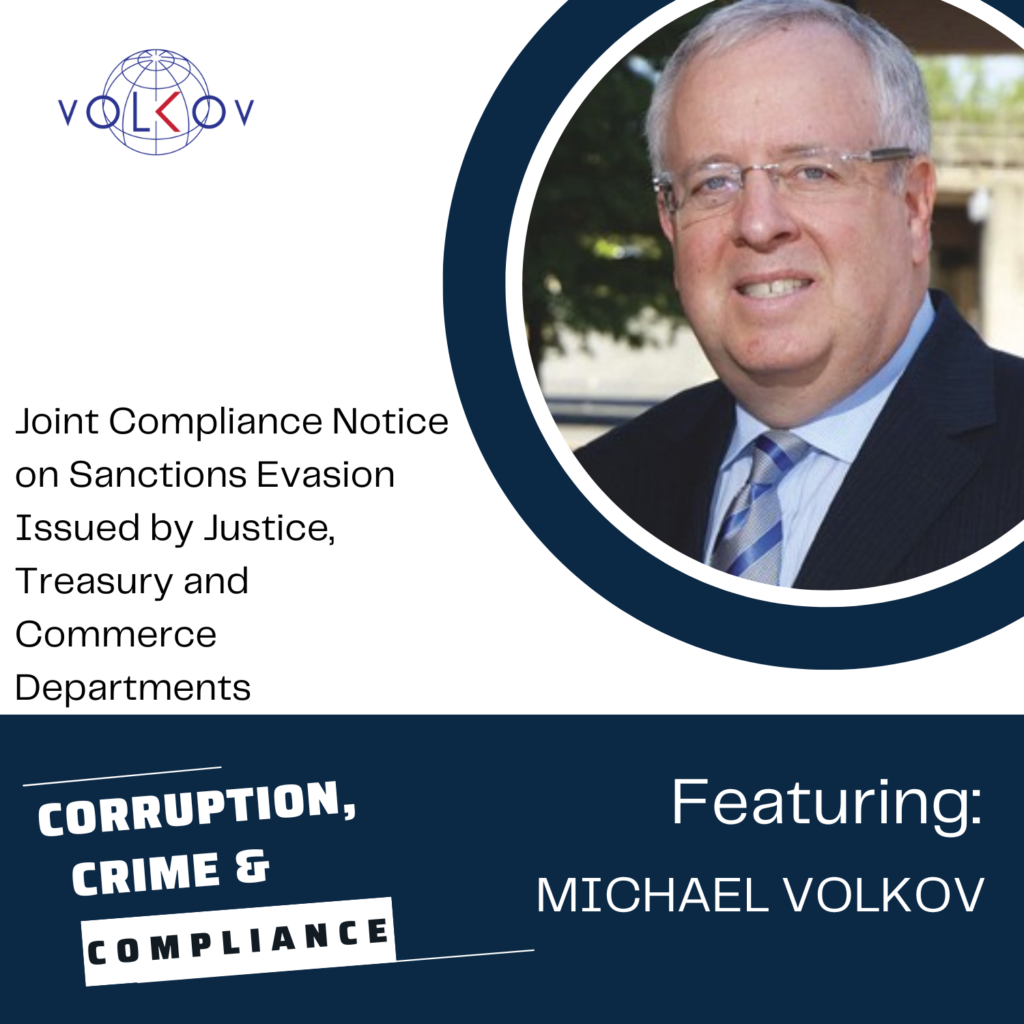
In this insightful solo episode of Crime, Corruption, and Compliance, host Michael Volkov delves into the details of the first-of-its-kind Joint Compliance Note (JCN) regarding the evasion of Russia sanctions and export controls. This noteworthy document has been jointly issued by the United States Justice Department, the Department of Commerce, and the Treasury Department, highlighting its significance in the world of compliance.
Throughout the episode, Michael explores the critical red flag lists, government expectations, and alerts to common high-risk scenarios provided by the JCN, emphasizing the crucial role it plays in guiding organizations through potential compliance challenges. With the U.S. Russia Sanctions and Export Control Program being unprecedented in its scope and complexity, Michael sheds light on the challenges faced by trade compliance officers and the steps organizations can take to mitigate risks.
Key ideas you’ll hear in this episode:
- The JCN is an essential resource for compliance professionals, detailing red flags and tactics used by organizations and individuals to evade applicable sanctions and export controls.
- The joint issuance of this document by DOJ, OFAC, and BIS highlights the importance placed on organizations to implement and maintain risk-based compliance programs.
- Third-party intermediaries and transshipment points are often exploited to disguise the involvement of specially designated nationals (SDNs) or parties on the BIS entity list in transactions, obscuring the true identities of end-users.
- The JCN provides an invaluable list of red flags to watch for if a company suspects that a customer is using a third party to evade sanctions or export controls, with real-world examples for context. Some of the red flags to watch out for include:
- Use of corporate vehicles, such as shell companies, to obscure ownership, source of funds, or countries involved.
- A customer’s reluctance to share information about the end use of a product.
- Use of shell companies for international wire transfers.
- Declining customary installation, training, or maintenance services.
- Mismatched IP addresses that do not correspond to a customer’s reported location data.
- Last-minute changes to shipping instructions contrary to customer history or business practices.
- Payments coming from a third-party country or business not listed on the end-user statement.
- Use of personal email accounts instead of company email addresses.
- Operation of complex and/or international businesses using residential addresses or addresses common to multiple closely held corporate entities.
- Changes to standard letters of engagement that obscure the ultimate customer.
- Transactions involving a change in shipments or payments previously scheduled for Russia or Belarus.
- Transactions involving entities with little or no web presence.
- Routing purchases through certain transshipment points commonly used to illegally redirect restricted items to Russia or Belarus.
- In the face of potential violations, companies are encouraged to utilize voluntary disclosure programs maintained by DOJ, OFAC, and BIS.
- Compliance and trade compliance professionals should review the JCN thoroughly to ensure overall trade compliance and be ready to conduct additional due diligence when confronted with any red flags.
KEY QUOTES:
“When multiple red flags come up, organizations are expected to screen the entities and persons involved and then conduct additional risk-based due diligence on customers, intermediaries, and counterparties.” – Michael Volkov
“In other words, not only do you need to screen, but they’re going to require you, and they’re going to second guess you on the issue of whether you should have done additional due diligence. And that’s important.” – Michael Volkov
“When confronted with any of these kinds of situations or any other red flags, remember, it’s key to do follow up due diligence, do more, and document what you do to make sure that you are protected in this situation.” – Michael Volkov
Resources





